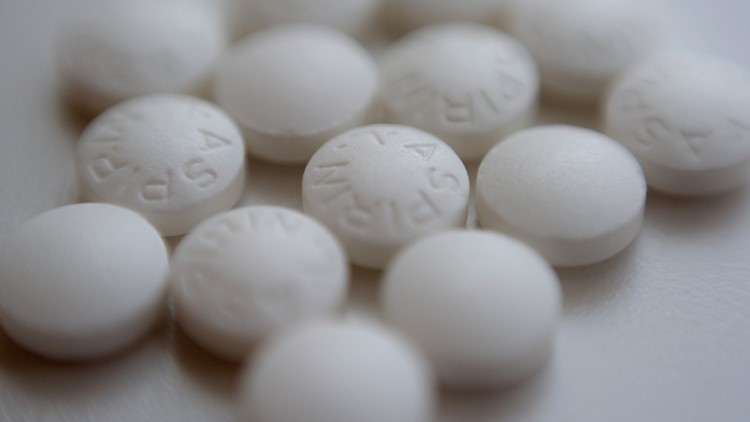ATLANTA — The practice of taking an aspirin every day to prevent heart attacks and strokes may be outdated, according to new University of Georgia research.
If you've never had a heart attack or stroke, you could be adding unnecessary risk of a major bleed by doing it.
A study published last month in "Family Practice" challenges the longstanding popular advice that a regular aspirin regimen can be a strong preventive measure for major health emergencies like heart attacks and stokes.
According to UGA, evidence first emerged about 30 years ago that aspirin could help reduce the risk of those kinds of catastrophic health events, but now may not do so enough to outweigh the risk of major bleeding events it also brings.
The researchers compared older studies on the preventive benefits of regular aspirin intake conducted between 1978-2002 against more recent studies from 2005 onward.
What they found was that per 1,200 persons taking aspirin for "primary prevention" over the course of five years, there were about four fewer heart attacks and three fewer strokes, but three more intracranial hemorrhages (inside the skull but not necessarily the brain) and eight more major bleeding events.
“What we found was that the harms were similar between the older studies and the newer studies that we found about the same risk of major bleeding. What happened though was in the older studies there was more benefit. There was a greater prevention of heart attacks greater prevention of cardiovascular death. We see less of that currently," said Mark Ebell, the director of epidemiology and biostatistics at UGA and the study's author. And so, the balance of benefits and harms just has changed to the point where it's roughly equal or you could even argue that there's more harms than benefits."
The study's conclusion is explicit: "Aspirin should no longer be recommended for primary prevention."
The study's authors are careful to note that their findings don't apply to people who have already had a heart attack or stroke, and recommend you always consult with your doctor about medication regimens or other major health decisions.
But according to the UGA research, nearly a quarter of American over the age of 40 and who haven't ever had a heart attack or stroke are taking aspirin daily when they don't know need to.
“We shouldn’t just assume that everyone will benefit from low-dose aspirin," Ebell told UGA's news site. "And in fact the data show that the potential benefits are similar to the potential harms for most people who have not had a cardiovascular event and are taking it to try to prevent a first heart attack or stroke."
MORE HEADLINES



